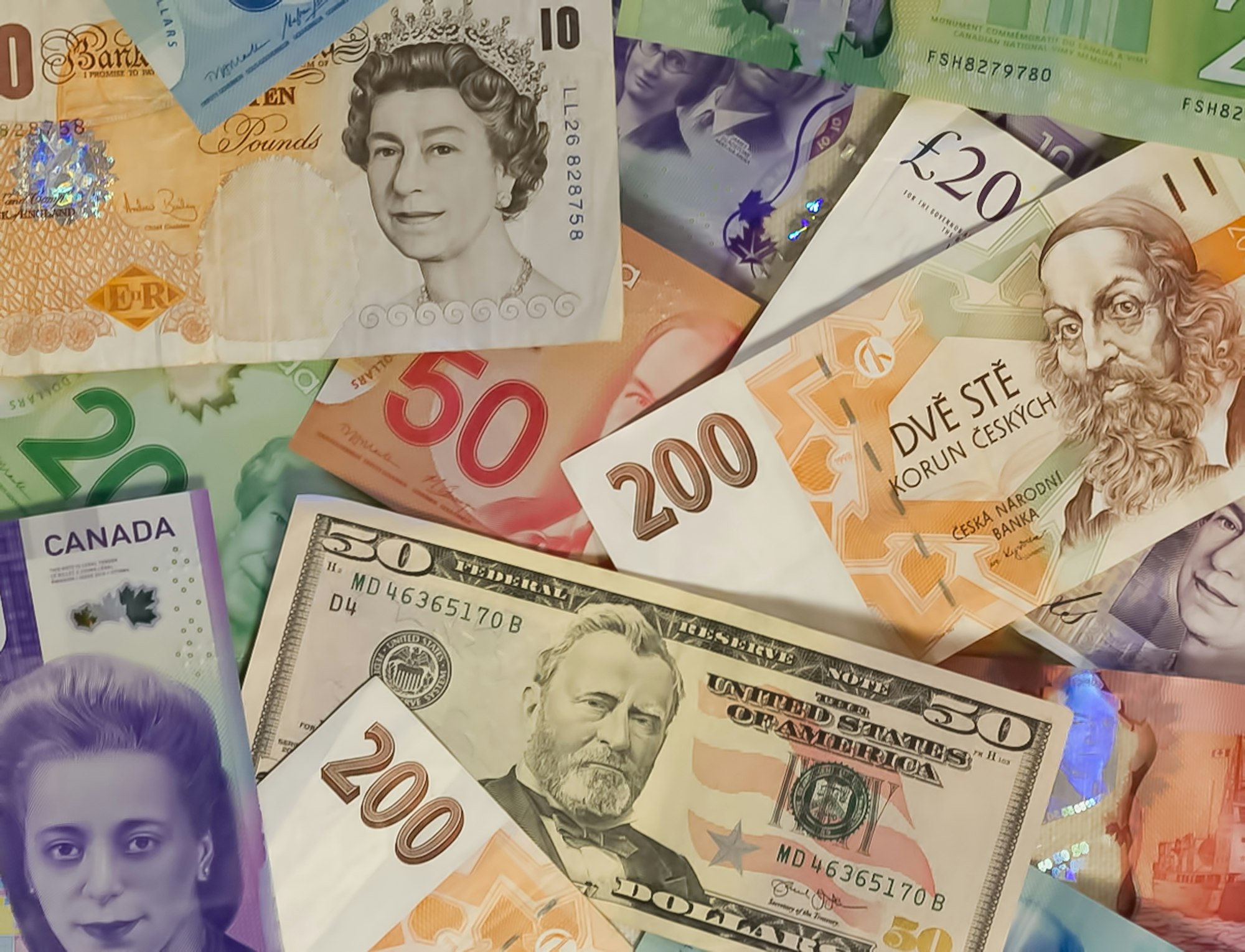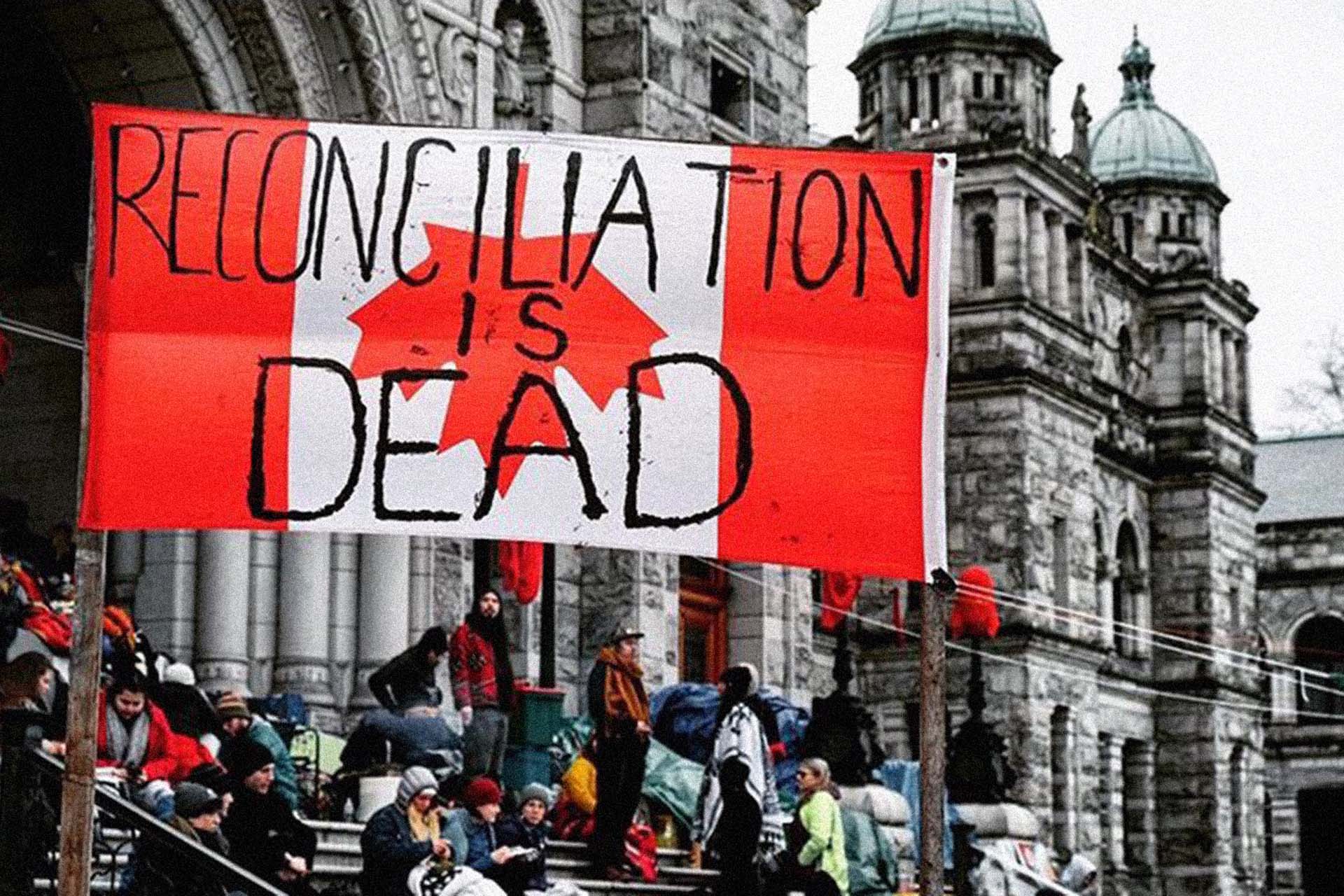Ideology
The public relations machinery of the Dominion of Canada distracts the population from the actual pursuits of the British Crown and its corporations, founded upon the Doctrine of Discovery, to extract the resources of the colonies and its labourers to secure economic power.

The Economy
This is a perfect place to deconstruct the neoliberal capitalist ideology that presents such public preening and performance, worthy of the attention of the electoral population of the nation state, with economic propaganda in the guise of democratic political communication.
The public relations machinery of the Dominion of Canada distracts the population from the actual pursuits of the British Crown and its corporations, founded upon the Doctrine of Discovery, to extract the resources of the colonies and its labourers to secure economic power.
For such pursuits, the Crown requires a lackey, a court jester, a performance artist, who might willingly distract and deceive the population in exchange for the notoriety, monetary compensation, and political power commensurate with the inconveniences of the office.
This is a perfect place to deconstruct the neoliberal capitalist ideology that presents such public preening and performance, worthy of the attention of the electoral population of the nation state, with economic propaganda in the guise of democratic political communication.
— Stephen Bau (@bauhouse) July 19, 2020
Should such a public figure disgrace himself—for it must be a suitable patriarch with sufficient skills in social artifice and nobility of birth as can be found among the colonialists—to such a profound degree that he jeopardizes his office, distance from the Crown is paramount.
In the economic system devised by the corporations of the British Crown and duly administered by its justices and solicitors, lack of property and means might be met with a force asymmetrical to that used upon a criminal of stature guilty of theft at scales of magnitude greater.
When Canada’s criminals are also the lawmakers in our parliaments and legislatures, the looting of the public purse happens in broad daylight. These criminals are consuming the futures of our children while destroying the planet for profit.#WEscam https://t.co/sDEqtIjNjs
— Stephen Bau (@bauhouse) July 15, 2020
However, the Crown must also distance itself from the improprieties of the failed colony, which has served, until recently, as a foil for the past public relations failures of the British Empire in building its corporations and economy on chattel slavery and free labour.

Since the former subjects of the British Crown in the corporate capitalist beachhead of Hong Kong face censure and incarceration as a result of the repatriation, or, rather, the hostile corporate takeover of yet another failed colony, the colonizer has become the colonized.
It is possible to believe a different story, beyond the intellectual constraints of the existing metanarrative that we collectively refer to as “the economy,” a fiction devised by the subjects and civil servants of the British Crown and its corporations.
The stealth aspect of racism: “Whether it’s housing, jobs, health care, banking or the prison system, systemic racism is sewn into every aspect of all we do — and its power lies in its ability to hide.”#SystemicRacism #CanadianGenocide #ShutDownCanadahttps://t.co/Ngglb8cTWS
— Stephen Bau (@bauhouse) July 14, 2020
“Well-meaning and tolerant people are more than capable of reinforcing racist systems. We can find structural racism in hiring practices that emphasize the intangible idea of ‘fit,’ where hiring committees tend to duplicate their own demographics.”https://t.co/Lcqt1cSj1O
— Stephen Bau (@bauhouse) July 14, 2020
Our time, energy, and creativity are being commodified as a “human resource” that can be exchanged for currency, which, when accumulated in sufficient quantities, can be employed in the acquisition of capital, property, and real estate.
Chattel slavery is the language of empire. Ownership and mastery, terms of social, economic, and political dominance in the Dominion of Canada, are a means of accessing the foundational values of the dominant social, economic, and political hierarchy: fame, money, and power.
Canada’s Indian Reserve System served, officially, as a strategy of Indigenous apartheid preceding South African apartheid and unofficially, as a policy of Indigenous genocide preceding the Nazi concentration camps of World War II.#ApartheidCanadahttps://t.co/cpEBl7Fmn3 https://t.co/8RXJkRrSKz
— Stephen Bau (@bauhouse) July 14, 2020
China and the British Empire are reflections of the other. They currently represent the same system of state capitalism as iterations in form. Each espouses the ideologies of freedom and collective governance by the people, with the oversight of representative authorities.
The effect of conflict is to put enemies into an adversarial relationship. In a relationship, people reflect back to each other thoughts, ideas, actions, habits, and patterns of behaviour that eventually evolve into mirror images of the other.

Architecture is ideology made manifest. @trufelman
Design is the representation of an idea. @ablerism
Media are extensions of who we are.
— Marshall McLuhan

“…technological innovations are extensions of human abilities and senses that alter this sensory balance—an alteration that, in turn, inexorably reshapes the society that created the technology.”
— Marshall McLuhan

“The economy” is a man-made technology that is failing humanity, because its own internal logic of reductionism and dehumanization, built on the metaphor of humans as cogs in a machine of our own making, is destroying the natural biological technologies on which our lives depend.
If we continue to believe the story of scarcity, competition, and domination, we will destroy ourselves.
We need a new story to restore our humanity.
In this moment, we have an opportunity to collaborate and create, to reimagine our social architecture.

If we continue to believe the story of scarcity, competition, and domination, we will destroy ourselves.
— Stephen Bau (@bauhouse) July 19, 2020
We need a new story to restore our humanity.
In this moment, we have an opportunity to collaborate and create, to reimagine our social architecture.https://t.co/JPpBhXX4Rc
“That the Doctrine of Discovery that founded Canada decreed that any land that was not inhabited by Christians was open for European settlement is genocide.” pic.twitter.com/7usDbRw4WO
— Stephen Bau (@bauhouse) September 22, 2019
Since the leaders of the nation state are constrained by their roles as PR representatives for a colony of the British Crown, its resource extraction corporations, and military police force…
— Stephen Bau (@bauhouse) February 19, 2020
“You’re trying to justify genocide with a piece of paper?” https://t.co/BGz3r24qVx
In fact, money and the economy are just stories that we tell ourselves to perpetuate this social, economic, and political machinery. To restart the economy is to restart the killing. We need to redesign everything. Why do we accept this reality?
— Stephen Bau (@bauhouse) June 5, 2020
The social, economic, and political system of Canada has been designed to enact and perpetuate systemic racism.
— Stephen Bau (@bauhouse) July 3, 2020
You cannot fight systemic racism and restart the Canadian economy. These are mutually exclusive goals.
You must give up power. “Crown land” is Indigenous land.
The last thing we need is to “restart the economy.”
— Stephen Bau (@bauhouse) July 14, 2020
You say “jobs” and I say “economic violence and white supremacy.”
Let’s call the whole thing off.#BullshitJobs #EconomicViolence #CanadianGenocide #ShutDownCanada #GeneralStrikehttps://t.co/spJwmP8Xd9
Moral bankruptcy. To “restart the economy” is to appeal to the sense of fear and scarcity that perpetuates systemic racism. Canada is whitewashing a genocide perpetrated by priests, CEOs, and politicians.#PublicRelations for the #CanadianGenocidehttps://t.co/jfJu41xkH5
— Stephen Bau (@bauhouse) July 17, 2020
Canadians do not care if @TheCrownCa and their politicians and CEOs are liars, thieves, and con artists.
— Stephen Bau (@bauhouse) July 17, 2020
Who is going to hold these criminals to account?
“Crown land” is stolen Indigenous territory.#WEscam #BrutishColonizershttps://t.co/h1RTx5Fj9Z
The provinces, territories, and “Crown land” are stolen land. Your governments are illegitimate.
— Stephen Bau (@bauhouse) July 17, 2020
The RCMP are invading and occupying unceded Indigenous territory.#WEscam #BrutishColonizers #DefundThePolice #AbolishTheRCMPhttps://t.co/83vdDQ4NmT
Define damage. When land is regarded as property that can be owned and a resource for monetary value extraction, any life that might have once depended upon the living ecosystems of the soil, animal habitat, and hydrological systems, including humans, are destroyed.
— Stephen Bau (@bauhouse) July 21, 2020
Corporate corruption drives self-destructive industries, such as the death cult of neoliberal capitalist fossil fuel enterprises, bought from the American Empire by @CanadianPM @JustinTrudeau, a PR rep of the British Crown and its corporations. https://t.co/YGk0EYeat3
— Stephen Bau (@bauhouse) July 21, 2020
If this was a privately owned pipeline, the project would be dead by now. But because JT bought it, it still has legs, and will continue to violate Indigenous territories. https://t.co/MMZ1k3QAGo
— Rob (@NehiyawRob) July 2, 2020
Believe the science.
— Stephen Bau (@bauhouse) July 17, 2020
“I’m going to be much more outspoken in the coming election cycle. Trudeau is a liar,” Suzuki says. “For me, that’s the charge. He’s an out-and-out liar. I don’t think he deserves a second chance.”#ClimateEmergency #WEscamhttps://t.co/JCpZMVarh2
When Canada’s criminals are also the lawmakers in our parliaments and legislatures, the looting of the public purse happens in broad daylight. These criminals are consuming the futures of our children while destroying the planet for profit.#WEscam https://t.co/sDEqtIjNjs
— Stephen Bau (@bauhouse) July 15, 2020
And then there are corporate grifters who act as public relations representatives for the nation state, buying pipelines from Texas oil companies using the public purse to enrich the friends who grease his palms. @JustinTrudeau #WEscamhttps://t.co/zkrX9JXrs2
— Stephen Bau (@bauhouse) July 13, 2020



